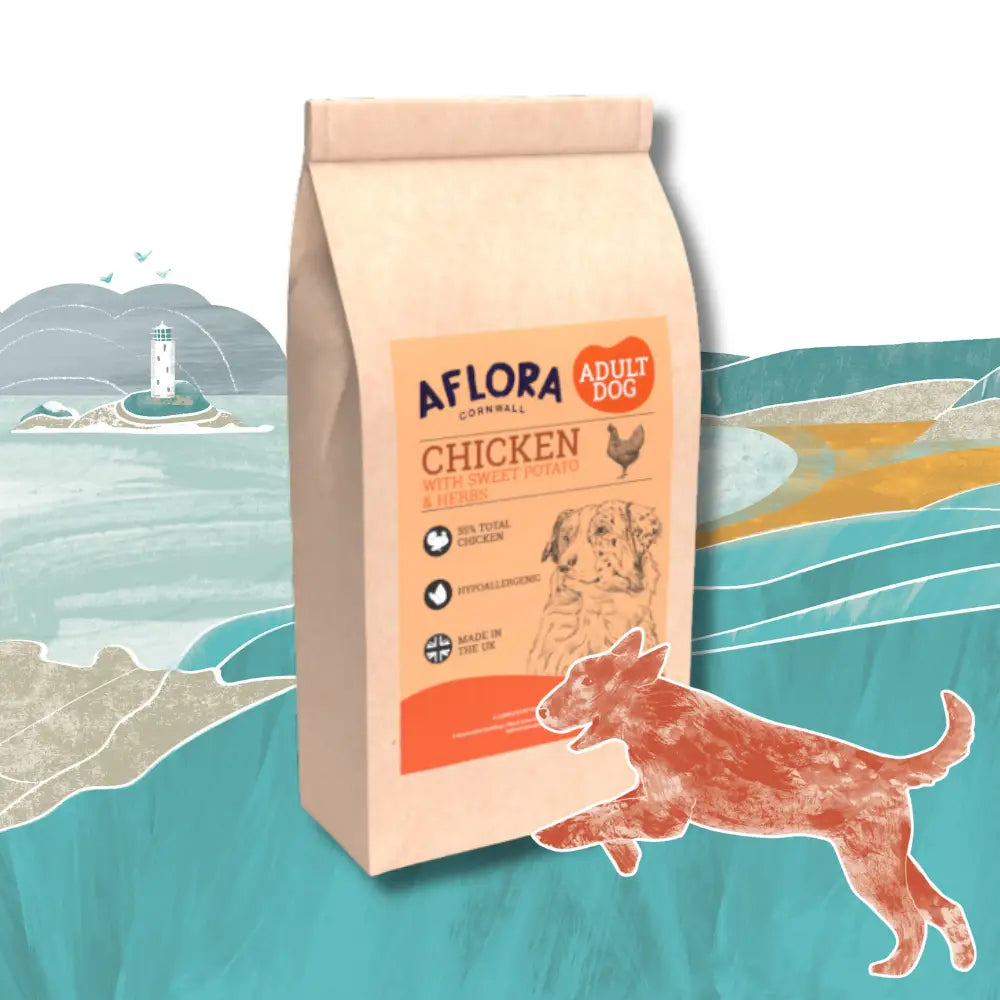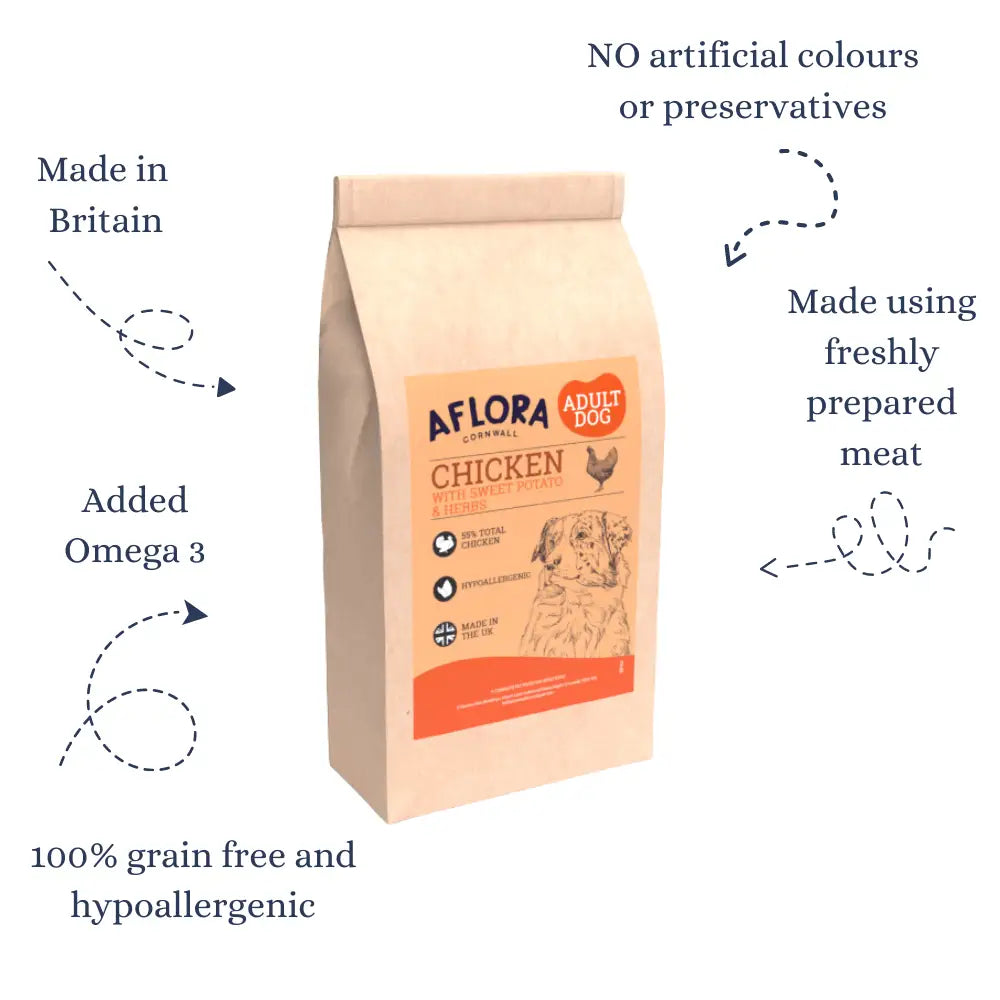Did you know that it is estimated that more than 1% of all dogs that reach the age of twelve will develop diabetes? This chronic condition cannot be cured but it can be managed successfully and there are plenty of things we can do to reduce the chances of our dogs developing this life-altering condition too.
In today's post, we will be exploring diabetes in dogs, how it develops and how it is managed with the help of dietary changes and good veterinary advice. We will also be looking at ways you can reduce the chance of your dogs developing diabetes with the help of some fantastically tasty foods, treats and chews.

What is Dog Diabetes?
Similarly to the condition in humans, dog diabetes is a chronic condition that affects the amount of sugar in our furry friends’ blood. Diabetes is diagnosed when your dog stops producing or makes too little of the hormone insulin, which is responsible for the regulation of said sugars. Insulin is an essential hormone in the transferral of energy from your dog's food to their cells and if is too little of it is available it can lead to hyperglycemia, a build of high concentrations of glucose in the bloodstream, and cells being not able to function properly due to energy starvation. If left untreated, diabetes can lead to complications such as lethargy, seizures, vomiting, extreme weight loss, kidney failure, cataracts, blindness and even a significant reduction in life expectancy. However, diabetes is easily treated with modern medicine and treatments, such as insulin injections, specialist diets and exercises regimens, are widely available.
How does Diabetes Develop in Dogs?
The short answer to this question is, that no one really knows! With that being said there are factors that we know significantly increase the chance of your dogs developing this chronic condition. These include;
Breed: some breeds such as Poodles, Miniature Schnauzers and Samoyeds are particularly prone to diabetes.
Age: dogs over the age of 5 have a much higher risk of developing this disease.
Pancreatitis: persistent inflammation of this organ can cause an inability to produce insulin.
Obesity: can lead to conditions that have a direct correlation with diabetes diagnoses.
Gender: Female dogs are almost twice as likely to develop diabetes.
How to Spot Diabetes Symptoms in Your Dogs
According to the American Kennel Club, there are four early signs that we can watch out for in our canine companions which may indicate the onset of diabetes. If you do notice any of these symptoms you should always take your dog to the vet as soon as possible. These four early warning signs or symptoms are:
Excessive thirst: frequent and obsessive drinking, water bowl often emptied.
Increased urination: unusually increased trips outside and the onset of accidents in the house.
Weight loss: despite normal feeding routines as they won't be effectively converting the energy from their foods
Increased appetite: constantly hungry despite usual feeding routine, see above.
In more advanced cases, symptoms can also include complete loss of appetite, lethargy, vomiting and depression.
Get The Full Lowdown From American Kennel Club Here>

Preventing Diabetes in Dogs
Although there is no known cure or all-encompassing prevention treatment for diabetes in our dogs, there are things that can be done to reduce the chances of them developing it. Neutering your female dogs is something that can be done as un-neutered dogs have a higher chance of developing the condition. One of the biggest things that can be done for your dog's general health and the prevention of diabetes and other conditions is to maintain the healthiest diet and exercise routines that you can. Diets that include large amounts of fats and fillers can cause issues such as obesity and pancreatitis which are both known to be linked with diabetes diagnoses. As such, feeding your dogs a healthy diet of all-natural foods with lean protein sources and rich sources of fibre, and essential vitamins and minerals is something all dog owners should be doing. The healthiest dogs (and humans!) are ones that are fed the correct amount of food whilst undertaking regular anaerobic exercise. If you have any worries about the right thing to do to keep your furry friends in tip-top condition, don't hesitate to consult your vet or give us a call.
Our Dog Diabetes-Friendly Treats, Foods and Chews
At The Pets Larder we are committed to providing the healthiest foods, chews and treats we possibly can for your dogs. Any dog with a medical issue should always be guided on their dietary requirements by a professional, but we know that we will have exactly what they need when you know what that might be. From vegetarian treats loaded with nutrition to fantastically lean foods for those dogs who need to shed a few pounds, The Pets Larder has perfect all-natural pet products made by the best holistic and wholesome brands this country has to offer.
Start Your Low Fat, All-Natural Dog Food Journey Here>

























